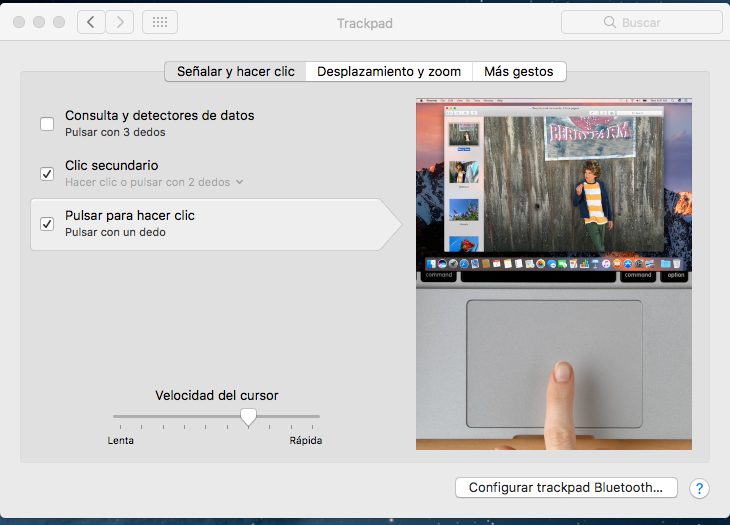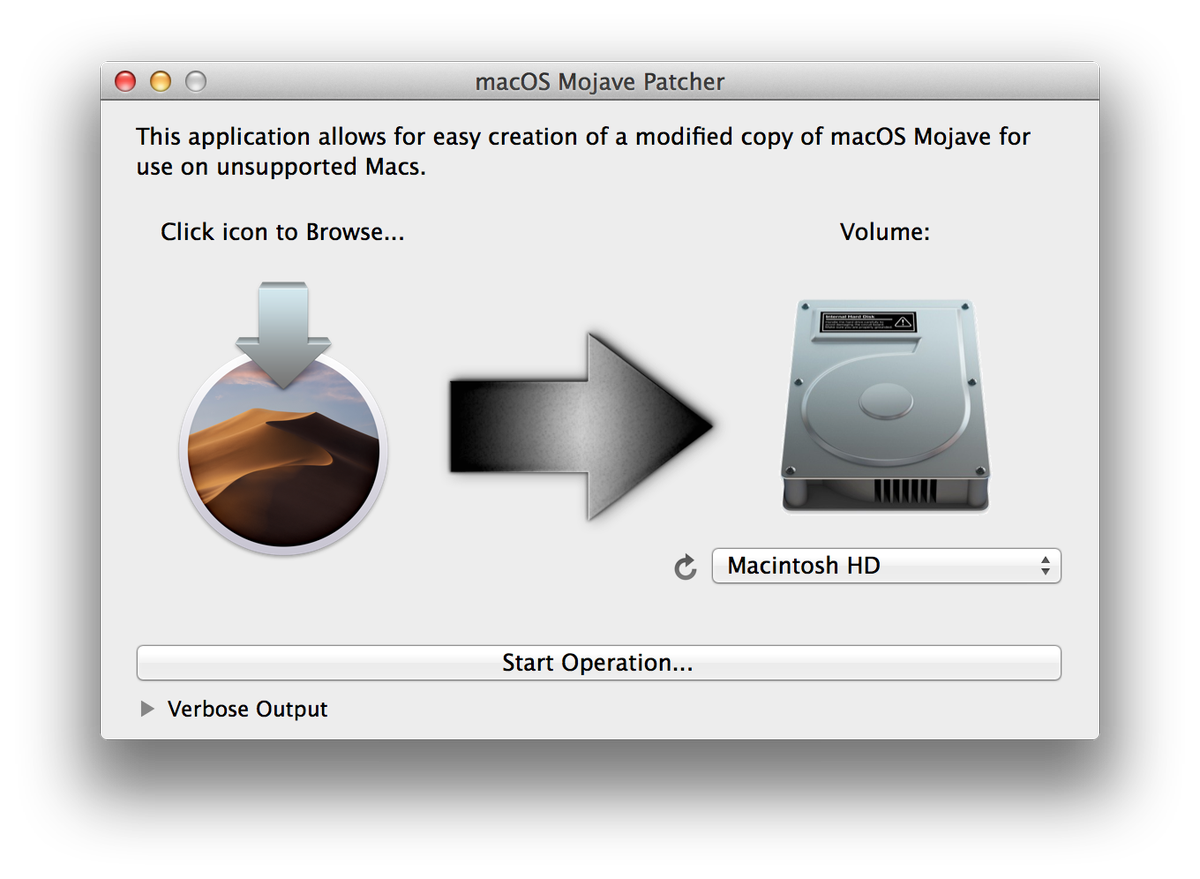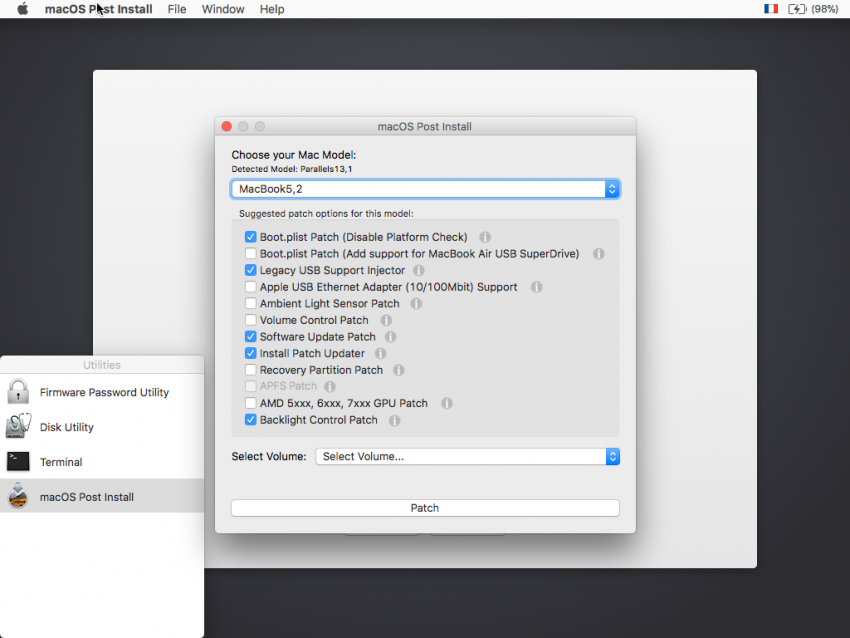
- FORO MACOS SIERRA PATCHER INSTALL
- FORO MACOS SIERRA PATCHER UPGRADE
- FORO MACOS SIERRA PATCHER PRO
- FORO MACOS SIERRA PATCHER SOFTWARE
FORO MACOS SIERRA PATCHER UPGRADE
So yeah, back to the thread topic Is it possible to upgrade 10.6.8 Snow Leopard to the 10.13 High Sierra? Anyone here have experience doing so? What is your best advice? Looking forward for some feedbacks.
FORO MACOS SIERRA PATCHER PRO
If I can, I plan on keeping my 2009 Mac Pro for as long as it can boot.Sadly when iTunes, browsers and now Dropbox has stop to support 10.6.8 machine, I guess it's time for an upgrade. that is, until we can apply our workarounds. Maybe then we'll see the final slash of the cMP. Or, Apple will keep their current new list for yet another version, then completely wipe it out a year after that. What's scary is that, about a year from now, I'm sure that every cMP will be off the list, and we'll need a workaround for them all. For instance, my 2009 MBP has issues with some of El Cap's animations granted, it's otherwise okay. I mean, not FINE, but just as things are in El Cap - and things are slightly questionable. I guess the UI hasn't changed much, so they should be fine. (And, hopefully that workaround isn't something that has to be done with every minor update.) The question is whether or not they will be good at running Sierra.

Anyway, those unsupported Macs that have the 9400M should be able to have 10.12 installed on them easily, with some workaround. Does this mean that it's supported? According to Mactracker, there IS no "late-2009" MacBook Pro. I have what's called a "mid-2009" MacBook Pro w/ 9400M. I'd hate to see what it does if I were to do some future workaround on it and get "macOS" Sierra. For example, Stacks (which does what it did 10 years ago, but 3x less efficiently) lags like heck on my 2009 MacBook Pro. However, as for laptops, they've been continuously stressed-out by Apple's new versions of Mac OS, as such new versions seem to become more and more graphically heavy, even if they sport the same animations. My guess is that the 2009 and possibly 2008 Mac Pros can do it, and, with luck, the 1,1/2,1 ones. And, what's special about this moment in time is that there will be many more Macs needing the workaround - and there's no knowing which Macs can receive it properly and which cannot. Well, I do not even need to immediately upgrade but, if I do, hopefully there will be a workaround. Not sure why the non-Pro MacBook from 2009 is supported, yet the 2009 MacBook Pro isn't! Just bought 8GB of RAM for my 2009 MacBook Pro, and now I'm a bit disappointed that it's been crossed from the list. Using dylib injection to fake out system checks ( patch). Sierra does not allow updating to minor versions (such as 10.12.1) without modification. Main Page/Instructions: MacOS Sierra Patcher Tool for Unsupported Macs
FORO MACOS SIERRA PATCHER INSTALL
Known Patching Methods ( the important bit):Īutomatic tools that can be used to install macOS Sierra onto an unsupported Mac. OS X Extractor - Beta USB Kexts.zip (depreciated)

MacPro1,1 and 2,1 can run OS X El Capitan with the methods noted in the spoiler below, but are currently not supported by macOS Sierra due to a lack of SSE 4 support (the CPU can be upgraded but its firmware does not support newer SSE 4-compatible CPUs). Older Legacy Macs not in this table (including the MacBook2,1, MacBook3,1 and iMac5,1) can install Mountain Lion (10.8), Mavericks (10.9), and Yosemite (10.10) with MacPostFactor or OS X Extractor (noted in the spoiler below), but are not supported by OS X El Capitan (10.11) or later.

FORO MACOS SIERRA PATCHER SOFTWARE
It makes sure that system files and their permissions are automatically protected, and also updated during Software Updates. OS X El Capitan (10.11) includes SIP (System Integrity Protection/Rootless). When Apple dropped the 32-bit kernel entirely in OS X Mountain Lion (10.8), EFI32 Macs no longer had an Apple-supported mechanism to boot newer versions of OS X. However, Apple did not support booting the 64-bit kernel in Macs that shipped with EFI32 firmware, even if they had 64-bit processors capable of running the 64-bit kernel. OS X Snow Leopard (10.6) was the first version of OS X with support for 64-bit kernels, allowing booting with either a 32-bit or 64-bit kernel. This post will be updated with solutions as they become available.

This is a thread for people to discuss and offer solutions for newly unsupported Macs in macOS Sierra.


 0 kommentar(er)
0 kommentar(er)
